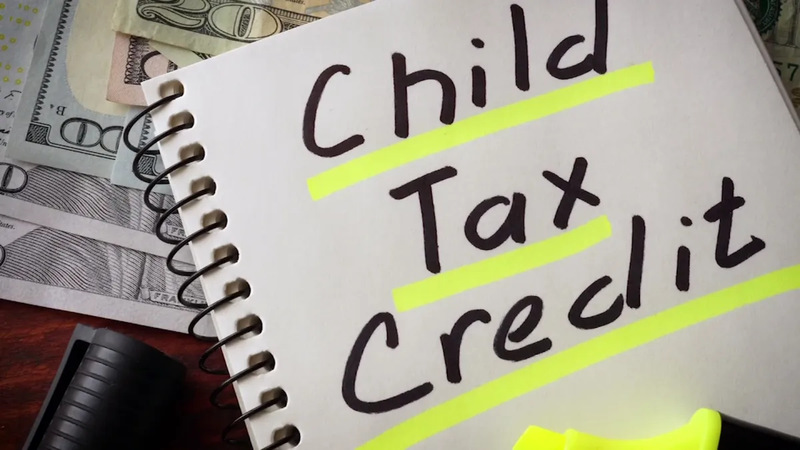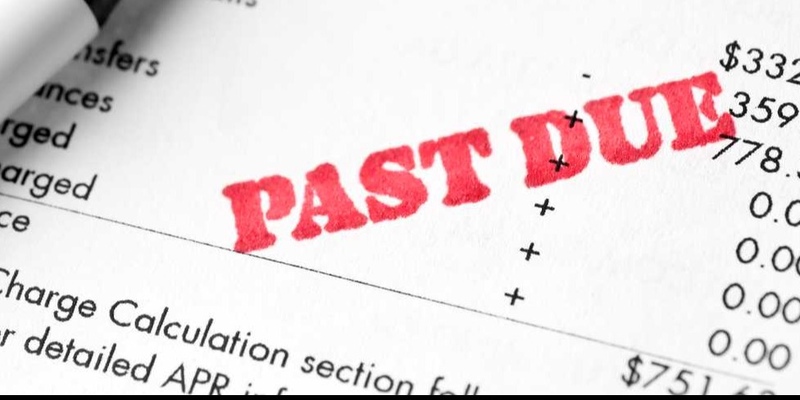Understanding Tax Benefits
Aug 05, 2024 By Rick Novak
Tax advantages are very helpful for single parents because they decrease financial stress and assist their families. Single parents must always explore more about the tax breaks available to them. We can talk about these advantages, so as single parents you make improved choices about money matters.
Child Tax Credit
The Child Tax Credit is a significant tax benefit for single parents. It offers monetary support to qualifying families for each eligible child under 17 years old. Single parents can claim a particular amount per child, which might change depending on their income and other elements. Recognizing the criteria for eligibility and the credit amount can have a big effect on how much a single parent receives in a tax refund or pays as a liability.

For single parents, they must understand the details of the Child Tax Credit to use it fully. Knowing that this credit can be refunded in part is key to understanding; if a single parent's tax responsibility reduces to zero. They might still get back money for some part of their total credit value. Moreover, alterations in tax rules and laws could influence both the availability as well as the sum of this credit. Hence, it becomes very significant for solo mothers or fathers to keep up-to-date with any changes or modifications made by authorities regarding these matters.
- Refundable: The Child Tax Credit is partially refundable, allowing eligible single parents to receive a refund even if their tax liability is reduced to zero.
- Tax Law Updates: Changes in tax laws and regulations can impact the availability and amount of the Child Tax Credit, highlighting the importance of staying informed about any modifications.
Dependent Care Credit
Dependent Care Credit is a tax credit for single parents who pay for childcare services. The purpose of this credit is to help with the cost of looking after dependent children, giving a deduction from your total tax bill. Things that are paid for about dependent care can include daycare, preschool, or care given after school hours. With this credit, single parents can decrease some of their childcare expenses and better their total monetary state.
To get the most from Dependent Care Credit, single parents should maintain careful records of their childcare costs during the entire year. Keeping documentation like receipts and invoices precisely will make it easy to file a claim, and also guarantee that all qualified expenses are accounted for correctly. Also, single parents need to confirm if the care provider is eligible as per IRS guidelines and follow them strictly to avoid any possible differences or problems with their tax returns.
- Documentation: Maintaining detailed records of childcare expenses, including receipts and invoices, is crucial for accurately claiming the Dependent Care Credit.
- Eligible Providers: Single parents should verify the eligibility of childcare providers according to IRS guidelines to ensure that their expenses qualify for the Dependent Care Credit.
Head of Household Filing Status
For single parents, filing as head of household can lead to big tax savings. This status provides a larger standard deduction and lower tax rates than what you get from filing as a single. Certain conditions must be met for someone to qualify as head of household, including being not married, paying over half the expenses for maintaining a home, and having at least one dependent who fulfills certain requirements. Choosing the appropriate filing status is crucial for maximizing tax benefits.
For single parents, it is crucial to understand that they must fulfill specific conditions from the IRS to claim head of household filing status. Any false information or misinterpretation could lead to penalties or an audit. So, single parents must confirm if they meet all requirements and report their filing status correctly to maximize tax savings while avoiding any possible issues with the IRS.
- IRS Criteria: Claiming head of household filing status requires meeting specific IRS criteria, including being unmarried and paying more than half the cost of maintaining a home.
- Accuracy is Key: Single parents should accurately report their filing status to the IRS to optimize tax savings and avoid potential penalties or audits.
Earned Income Tax Credit
Another benefit that is very helpful for single parents with low to moderate incomes is the Earned Income Tax Credit (EITC). This credit, which can be refunded, has been made to help people who work and their families. It gives a financial increase by increasing tax refunds. Who can get the EITC depends on many things such as how much money someone makes, if they are filing alone or with others, and the number of kids they have that qualify them for this credit. This is important because single parents might not be aware that they can claim the Canada Child Benefit, especially if they share custody with another parent.
For the Earned Income Tax Credit, single parents can double-check the income limits and other conditions from the IRS to ensure eligibility assessment is correct. Also, it's important to comprehend phase-out thresholds because one's chance for this credit slowly reduces as their earnings rise. When they make their income and deductions work optimally, single parents can get a bigger EITC refund which helps them improve financially.
- Income Limits: Single parents must be mindful of income limits set by the IRS to qualify for the Earned Income Tax Credit, as exceeding these limits can result in ineligibility.
- Phase-Out Thresholds: Understanding the phase-out thresholds for the EITC is essential, as eligibility gradually diminishes as income increases, impacting the amount of the credit.
Education-Related Tax Benefits

Parents who are single and also trying to improve their education or paying for the education of their kids could be eligible for particular tax advantages. The benefits might consist of the American Opportunity Tax Credit or Lifetime Learning Credit, which offers credits against tax owed for qualified education costs. Moreover, single parents may deduct interest payments on student loans and use 529 plans that give tax advantages to save money for future educational costs. Decoding these tax benefits related to education is useful for single parents, assisting them in handling the expense of education and putting money into their family's potential.
For single parents using education-related tax benefits, it is important to understand the precise criteria and limitations linked with each credit or deduction. For example, the American Opportunity Tax Credit can only be used within the first four years of post-secondary education. On the other hand, Lifetime Learning Credit has no time limit set for it - you can claim this credit as long as needed. If single parents plan their educational expenses strategically and use existing tax benefits effectively, they have a better chance of making higher education more affordable for themselves and their children.
- Eligibility Criteria: Understanding the specific eligibility criteria for education-related tax benefits is crucial for single parents to maximize their tax savings and plan their educational expenses effectively.
- Planning Considerations: Single parents should strategically plan their education expenses to make the most of available tax benefits, such as timing expenses to align with eligibility requirements for specific credits or deductions.
Healthcare Tax Benefits
It is difficult to handle healthcare costs for single parents, but some tax benefits can help. If a single parent purchases health insurance from the Health Insurance Marketplace, they may be eligible for premium tax credits which are determined by their income level and family size. Contributions made towards a Health Savings Account (HSA) or Flexible Spending Account (FSA) could provide tax advantages related to healthcare expenses. Using these healthcare tax advantages, single parents can lessen the financial pressure of medical expenses and make sure they have enough coverage for their families.
Single parents have to think about their healthcare needs and look at all possibilities for getting coverage and tax benefits. For instance, when single parents compare various health insurance plans given through the Health Insurance Marketplace, they can find out which one gives them the best coverage that suits their family's requirements within the affordability range. Also, knowing about how taxes are affected by contributions to HSAs or FSAs can help single parents make wise choices regarding handling their healthcare costs and getting maximum tax savings.
- Plan Comparison: Comparing different health insurance plans available through the Health Insurance Marketplace can help single parents find the most suitable coverage options that align with their budget and healthcare needs.
- Tax Implications: Understanding the tax implications of contributions to HSAs or FSAs is essential for single parents to make informed decisions about managing their healthcare expenses and maximizing their tax savings.
Conclusion
To sum up, tax reductions are very important to help single parents and make their financial duties less heavy. Using tax advantages that are offered, like the Child Tax Credit, Dependent Care Credit, and Earned Income Tax Credit can help lower the amount of taxes paid by single parents while improving their economic strength. These individuals must learn about who qualifies, how they should file, and what steps need to be taken in applying so as not only to maximize savings but also to stay within the rules set forth for taxation purposes. Tax breaks are a way for single parents to become more informed and take action, ensuring a better future for both themselves and their children.

What Is Total Shareholder Return (TSR)?

The Basics of Commodity Futures: A Beginner's Guide

Top Biotech Stocks

All You Should Know About Debt Related Statute of Limitations

High-Value Home Insurance: What is it?

Understanding Estimated Taxes and the Dreaded Penalty: A Complete Guide

Is It Possible? Transferring Your Mortgage to Another Borrower

How to Prevent Foreclosure and Keep Your Home Secure

Credit Cards vs. Debit Cards: What’s the Difference?

Companies Owned by Disney

Debt Forgiveness How Get Out Paying Your Student Loans
